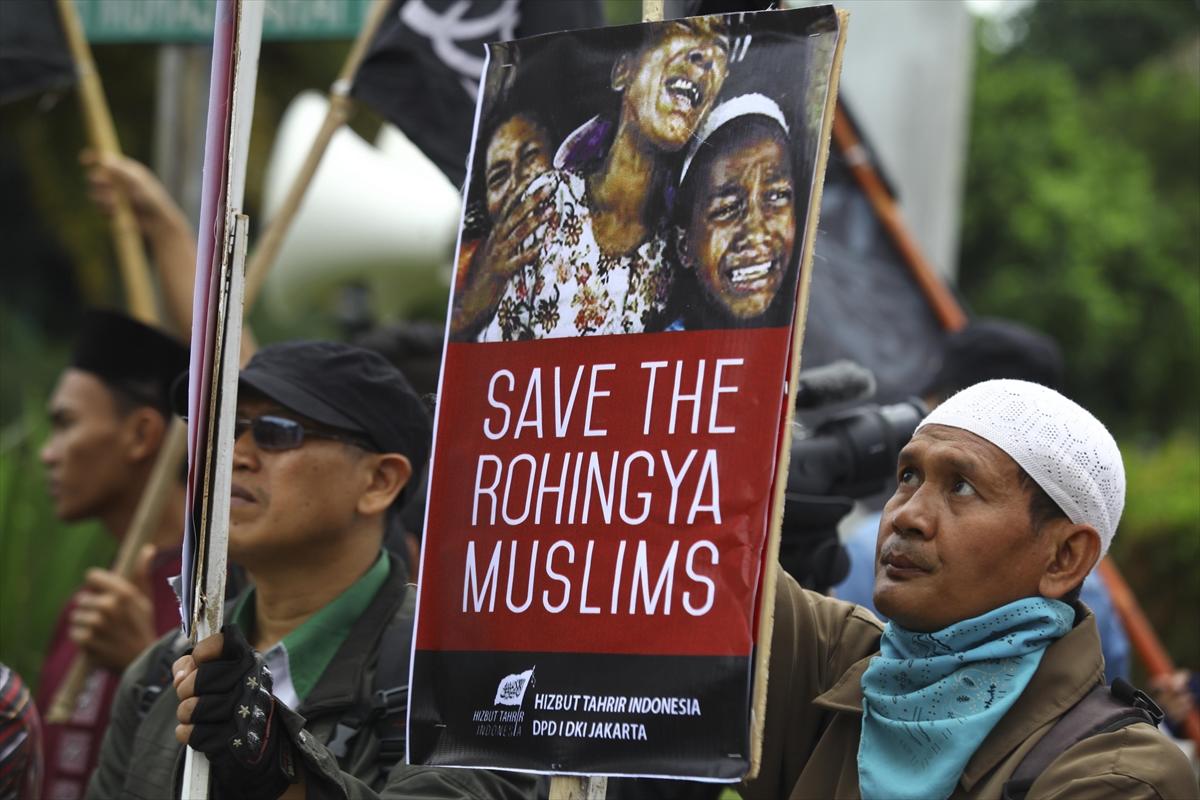Rohingya Crisis and the Sino-American Cold War

Democratic Arab Center
By : Ibrahim NASSIR
For decades Rohingya Muslims subjected to ethnic cleansing and driven out of their homes forcefully. According to a report by the Human Rights Watch, violence over last weeks has left 400.000 people displaced nationwide. However sadly, Myanmar leader Aung San Suu Kyi denies what is going on there, and she said that we could not describe the continuing violence as ethnic cleansing.
In last weeks, a group of peace activists have launched an international campaign calling on Nobel Peace Prize Committee to take back its 1991 prize to Myanmar’s de facto ruler Aung San Suu Kyi over her complicity in what is viewed as the ethnic cleansing of Rohingya Muslims in the country.
As we mentioned above the Rohingya Muslim are suffering from the segregation and racism in Burma. However, we are not questioning why this crisis revitalises periodically? In this analysis on the one hand we are going to find a response to this issue. On the other hand, we will reveal the role of the global powers in the ongoing crisis in Burma.
The Superpowers Rivalry and the Rohingya Suffering:
World powers like the United States don’t concentrate on the Rohingyas crisis. The million-dollar question is; why the Americans don’t care about this crisis? In our opinion, the United States has a plan of Surrounding China by crises to stop its economic development. Consequently, in our view, it detonated the crises of Korean peninsula and Burma. Maybe in upcoming months, the crisis of East Turkistan will blow up by the US intelligence. Who knows? As usual, president Doland Trump asks.
For several times President Barack Obama has repeated this phrase: “the United States cannot solve the world’s problems alone”. He urged all countries to work together on an array of the global challenges. However, China didn’t pay attention to Obama’s call. On the contrary, it has continued its “non-participant” policy.
Mostly, the United States is playing a significant role in the process of resolving global and regional crises. On the other hand, the Chinese position is focusing on the investing opportunities after the crisis resolved. For example, the civil war crisis in Sudan; the US was spending tremendous efforts to the termination of the largest civil war in Africa. But, after the crisis of the civil war resolved and the South Sudan separate state, the Chinese petroleum companies, came to invest in Southern Sudanese oil fields and create economic relations with the newest state in the world.
Afterwards, the Americans began to think seriously about developing a strategy that would force China to play a significant role the in resolving process of global and regional crises. So, they blow up crises in its bordering countries such as Myanmar. Unfortunately, extremist Buddhists target Rohingya Muslims.
Usually, sooner or later, the targeting of Muslims in Myanmar will generate volunteer armed organisations as it happened in Chechnya and Afganistan. In the coming period, we expect the flow of Mujahideen from all corners of the earth to Burma. The US intelligence Agencies will take its usual role in supporting them with weapons and equipment similar to what it did with the Afghan Mujahideen in their struggle against the Soviets.
In conclusion, as many observers assert, there is a shadow war between China and the United States, and since the end of the Cold-War era, America looks at China as the greatest adversary. Accordingly; the US doesn’t want to fight with China openly. It can be observed as a hostility to China by detonating crises around it.




